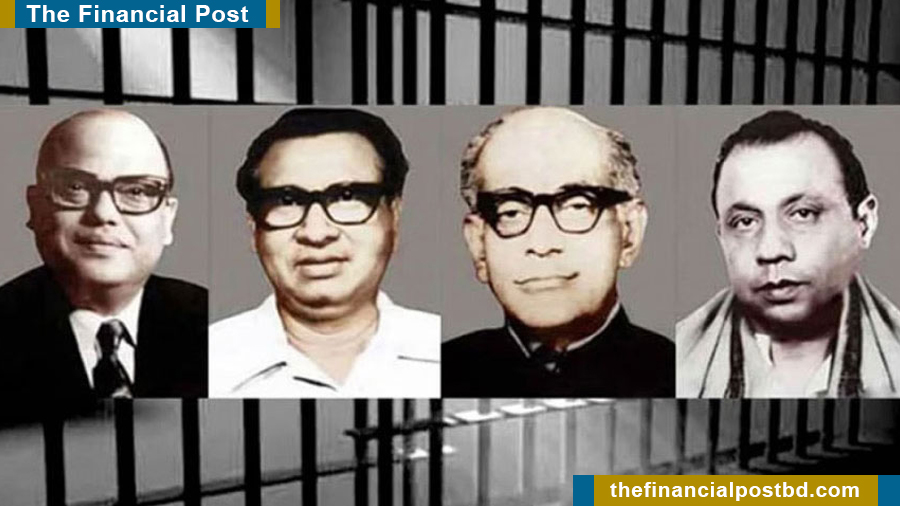On this day 50 years ago, the walls of Dhaka Central Jail bore witness to one of the darkest chapters in the nation's history, as four national leaders were brutally murdered behind bars.
The slain leaders were Syed Nazrul Islam, Tajuddin Ahmad, Captain (retd) M Mansur Ali, and AHM Quamruzzaman -- the core of Bangladesh's wartime leadership that guided the nation in the absence of Bangabandhu Sheikh Mujibur Rahman, who was imprisoned by the Pakistani forces in 1971.
More than 19 years have passed since a trial court convicted 11 individuals for the killings, yet most of the sentences remain unenforced.
Captain Abdul Majed, one of those sentenced to life imprisonment, was arrested on April 7, 2020, after decades on the run. He was later executed for his role in the assassination of Sheikh Mujib.
Among the remaining convicts -- believed to be hiding overseas -- Rashed Chowdhury is reportedly in the US and Noor Chowdhury in Canada. Despite repeated efforts through diplomatic channels, intelligence agencies, and Interpol, the government has failed to locate the other eight fugitives or secure the extradition of Rashed and Noor.
In the early hours of November 3, 1975, five armed army personnel dressed in khaki uniforms arrived at Dhaka Central Jail around 4:00am.
According to the first information report, one of the men, identifying himself as Captain Muslemuddin from the Bangabhaban, entered the jail and gunned down the leaders.
The four leaders were imprisoned shortly after August 15 that year, the day Mujib and most of his family were killed.
On November 4, 1975, Kazi Abdul Awal, the then deputy inspector general of prisons, lodged the FIR with Lalbagh Police Station. ABM Fazlul Karim, the officer-in-charge of the station, was assigned to investigate the murders. He gathered evidence from the site following a magistrate's inquest report on the victims' bodies.
The Indemnity Ordinance, however, blocked any investigation or trial for nearly 21 years. Following its repeal in 1996, the Criminal Investigation Department reopened the case on August 18 that year.
In 2004, a Dhaka trial court convicted and sentenced 11 individuals for their roles in the killings.
In its verdict, the Appellate Division of the Supreme Court, led by then chief justice Surendra Kumar Sinha, observed that the murders were part of a wider criminal conspiracy involving powerful elements within the state machinery.
On April 30, 2013, the Supreme Court's Appellate Division upheld the earlier verdict, confirming death sentences for Muslemuddin, Marfat Ali Shah, and Abdul Hashem Mridha, and life terms for Khondaker Abdur Rashid, Shariful Haq Dalim, Noor Chowdhury, Rashed Chowdhury, Ahmed Shariful Hossain, Abdul Majed, Kismat Hasem, and Nazmul Hossain.
FP/MI

